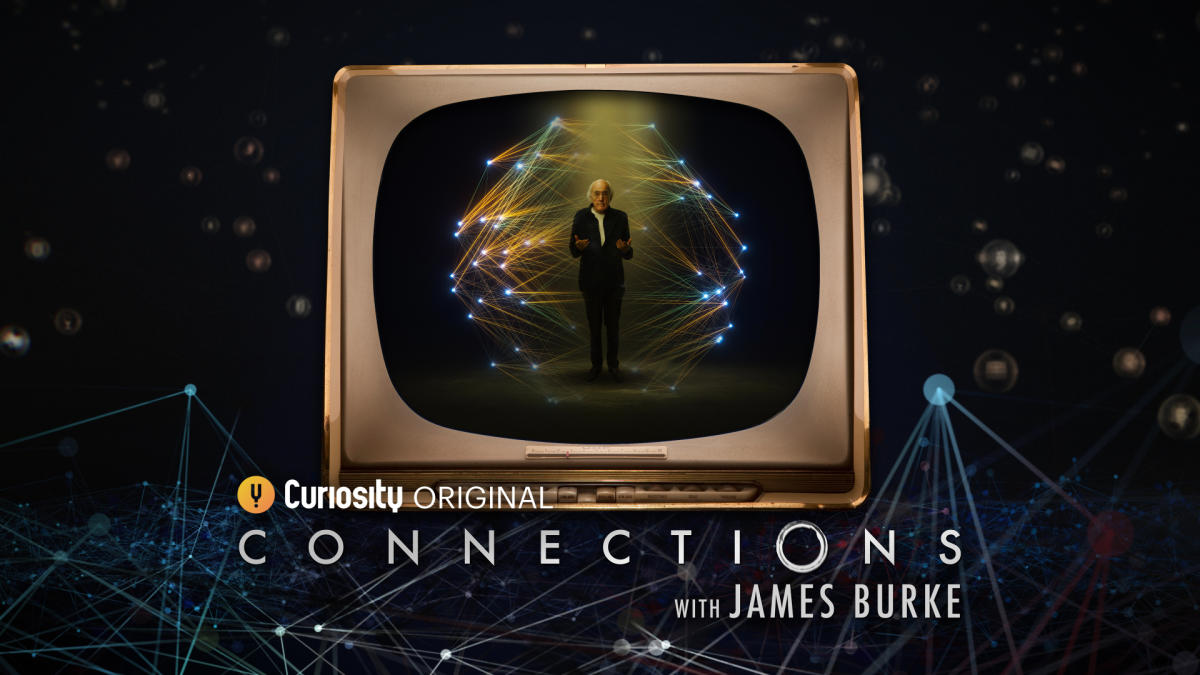Space.com recently had the chance to interview James Burke regarding the return of his acclaimed docuseries “Connections with James Burke” after 45 years. This time around, each of the six episodes takes viewers on a mind-boggling journey through history to an unforeseen future by exploring a web of unexpected and fascinating connections. The show delves into the reasons why our actions shape the future and how it will differ from our expectations.
Who could have imagined that we would go from ship-boring worms to incredibly realistic AI-powered avatars that are indistinguishable from humans? Or that Napoleon Bonaparte’s toothpick from 1814 would lead to quantum computers capable of predicting the future? Yet, Burke uncovers these intriguing connections and more in this captivating and thought-provoking series.
Related: AI is already helping astronomers make incredible discoveries. Here’s how
All episodes will be available for streaming on November 9, 2023, on Curiosity Stream.
The following interview with James Burke has been edited for brevity and clarity.
Space.com: It’s been 45 years since the first episodes of “Connections” aired, and there have been enormous technological advancements since then. Did you face new challenges when putting together this new series?
James Burke: When preparing for this new series, my main focus was on the history of change and the developments that led to it. I had to decide beforehand on the series’ endings, which I considered crucial for our future. These endings included the evolution of free energy, further advancements in the internet, genetics, avatars, predictive analytics, and nanofabricators.
My approach involved connecting the future to the past by working backward. For example, if I wanted to explore the future internet, I would trace back to find a related antecedent, and repeat the process until I stumbled upon unexpected, intriguing, and informative connections. The challenging part was knowing when to stop, as there was an abundance of material to work with.
Space.com: Which connection was your personal favorite?
Burke: My favorite connection was the one that linked Napoleon’s toothpick to predictive analytics. The beauty of starting with something like Napoleon’s toothpick is that no one can predict where it will lead.
Space.com: In the series, you discuss the future of AI. Do you believe humans will be able to keep pace with AI? Should we be concerned?
Burke: Throughout history, people have always worried about things they don’t fully understand. How many individuals today comprehend quantum mechanics? The majority of humanity has managed just fine without understanding such concepts.
I anticipate that artificial intelligence will soon rival the processing capabilities of the human brain. However, that doesn’t necessarily imply anything significant because you can’t unplug a human being as you could with AI, unless it finds a way to prevent it.
Should we worry about AI reaching a point where it becomes self-aware and takes measures to protect itself by making it impossible to shut down? If there’s anything worth contemplating, that would be it. Personally, I’m not fearful of that possibility. In fact, AI could be as groundbreaking as writing when it comes to developing and sharing knowledge. It may render many jobs obsolete, but humans will adapt and find new paths.
Space.com: In the episode about the “end of scarcity,” you discuss nanofabricators. Do you believe these machines hold the key to the future of human space exploration?
Burke: Indeed, nanofabricators will likely play a crucial role in supplying and sustaining us during space travel. If we desire a meal of eggs and chips on Mars, we will have eggs and chips.
Space.com: How do you envision space travel and technology evolving over the next 25 years?
Burke: In the next 25 years, it will be challenging to picture humanity venturing beyond our solar system. As for human travelers, going beyond Mars may prove difficult. However, we can expect more complex machines to explore the outer reaches of the solar system, thanks to advancing technology.


